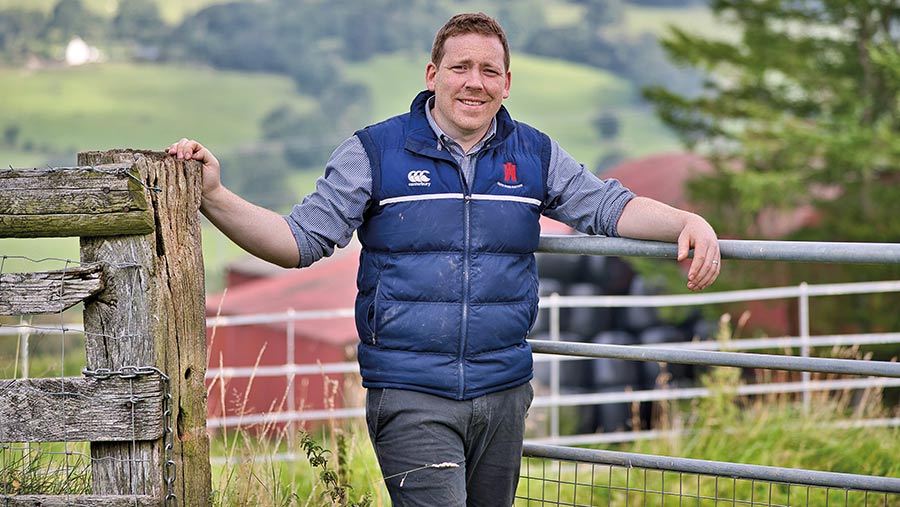Farmer Focus: Regen brings profit, I’m just wary of trees
 © Richard Stanton
© Richard Stanton It’s still ridiculously warm as I write, which is making us hold off housing cattle due to the likelihood of having problems such as pneumonia.
While it’s been warm, we have had a good deluge of rain, which has given good growing conditions for our green crops. The ground is still recovering from the summer.
While the top layer of ground is soggy, the subsoil is still soaking up what it can and is still relatively dry in part.
See also: Editor’s View: Control of regen ag must stay in farming hands
The fields we have subsoiled are recovering much better than their untreated counterparts, as water can sink to greater depths of soil with ease.
I guess this is our take on making us more resilient to the extremes of weather, which we seem to be more accustomed to these days.
For us, resilience means buying in less protein, which can be so volatile in price.
We have tried growing different arable crops for wholecrop silage, forage crops for outwintering cattle, and sowing more nitrogen-fixing crops to ease our burden on expensive fertilisers.
While I use the term resilience, I know other farmers might use “regenerative techniques” to describe our approach.
In the past, I have been sceptical about farmers who describe themselves as regenerative, as I thought they were merely a bunch of tree huggers who were not primarily focused on producing food.
Regenerative now seems to be the buzzword, alongside “sustainable”. However, quite often what is deemed to be regenerative also seems to be good business sense.
I think a lot of farmers are already operating businesses that are regenerative and sustainable. It’s important that we, as an industry, let the public know what we are doing.
There will be some issues that people label as regenerative and dislike – mine is tree planting.
I have no issues with trees planted in a linear fashion to form a hedge, but to take up good food-producing land in the name of regenerative farming or sustainability really screams the opposite for me – how can taking up land needed to produce food be sustainable?
I think however trees are planted, it must not be at the expense of food production. A growing world population will not thank a farmer who has planted a tree instead of growing food.

